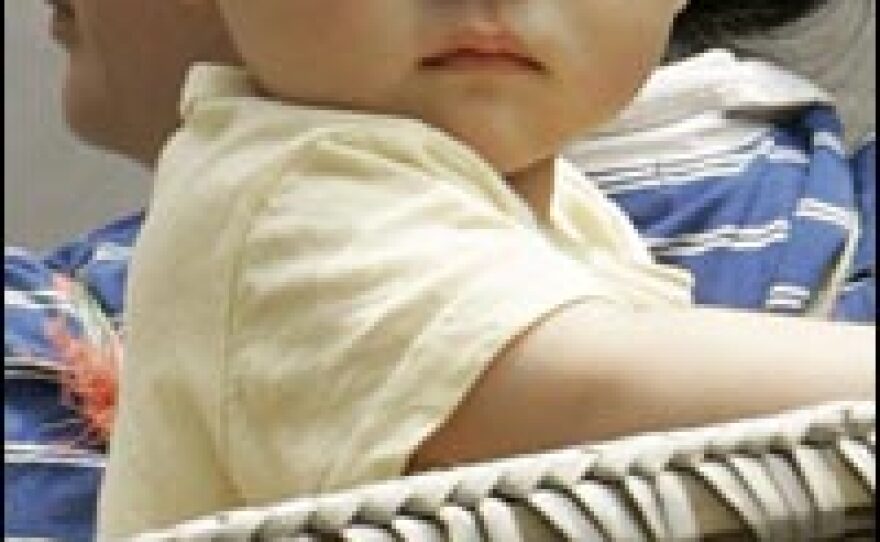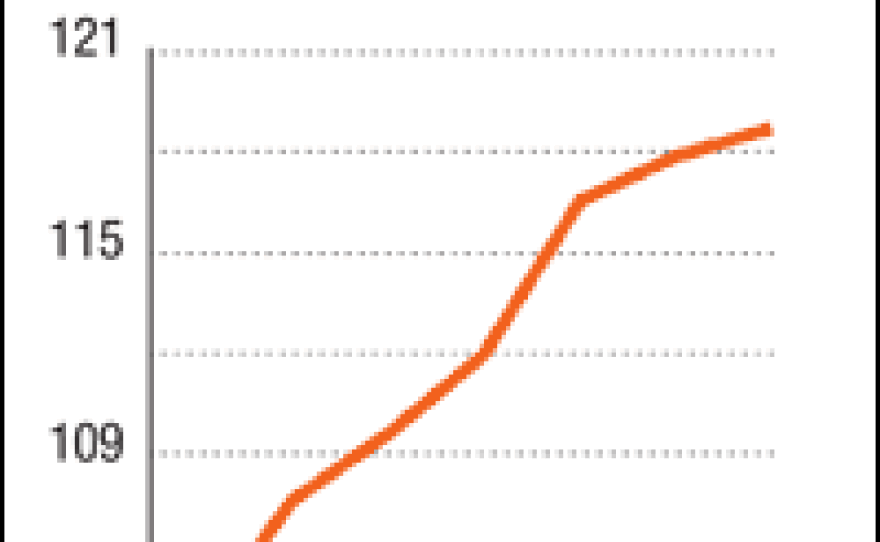

It has been three decades since China's one-child policy was introduced as a temporary measure to slow the country's population growth. But there's rising opposition to the policy amid criticism that it's creating another demographic crisis.
The trends are exemplified in the city of Shanghai, which has the lowest birth rate and the highest proportion of seniors in China.
As two-year-old Maomao and her 10-month-old brother Lulu play in a Shanghai park, little do they realize they're a departure from three decades of strict family planning. Although many rural Chinese have two children, China still limits most urban families to just one child.
Because Maomao and Lulu's parents are both only-children themselves, they're among the privileged few city dwellers allowed to have two kids.
"I was lonely as a child," says their mother Zara, who didn't want her full name to be used. "I was jealous of friends who had brothers and sisters. Now my friends are envious of my two children."
Figures bear this out: A poll last year showed 69 percent of Chinese would support a proposal to abolish the one-child policy.
Zara has come to the park with her mother-in-law, and her 81-one-year-old mother-in-law. All of them support China's efforts to control its population.
"Our leaders have thought a lot about the country's policies," the 81-year-old matriarch says. "Whatever they say is right."
'Abnormal' Sex Ratio at Birth
However, demographic scholars aren't so sure. Some academics now believe the simplistic thinking behind the one-child policy could be responsible for a looming demographic crisis.
Among them is Peng Xizhe, dean of social development and public policy at Fudan University.
"The major policymakers are only concerned about the total number of the population," he says. "But now China's population dynamic has become so complicated. On the one hand, the number is still growing. Then we have the very rapidly aging population. Then we have the issues of big migration. And also we face the problem of the abnormal sex ratio at birth."
That abnormal sex ratio means little Lulu might not find a wife, along with as many as 40 million other young men. The latest figures show 119 baby boys are born in China for every 100 girls — far above the normal ratio of between 103 and 107 boys per 100 girls — because of the traditional preference for boys and the availability of abortion.
Economic Consequences
The strict birth control policies have serious economic consequences too.
China's limited labor pool and its aging population means it will eventually lose its position as workshop of the world, says Zuo Xuejin, executive vice president of Shanghai Academy of Social Sciences. He says the demographic trend is making China less competitive in labor-intensive manufacturing than India, Bangladesh and other countries.
Indeed the future of the one-child policy was a hot topic at this year's session of China's parliament. But speculation that changes might be in the offing ended when Population Minister Zhang Weiqing said the policy would stay in place for another decade.
The academics say that's a mistake.
"It's better to just let families decide how many children they want," Peng Xizhe says.
Zuo Xuejin, of the Shanghai Academy of Social Sciences, says fertility "is a very basic right of citizens" that should not be interfered with.
One reason why they believe people should take control of their own fertility is China's rapidly aging elderly population.
'No One Will Take Care of Me'
In the Shanghai park, seniors far outnumber children; a staggering 20 percent of the city's population is older than 60. Longer life expectancy and the one-child policy mean fewer workers are supporting ever more seniors. And the disintegration of a state-run social security network means many seniors now fear a lonely future.
"I worry when I'm old no one will take care of me," says Wang Jintao. "At that time, I think my life will become very terrible. Our government never worried about that."
Wang is a teacher of the erhu — a traditional two-stringed instrument similar to a violin played balanced on the knee. As he prepares for his weekly class in the park with a group of seniors, he believes he's voicing the fears of an entire generation.
"Thirty years ago, our government made a mistake," he says. "The result is in big cities, most of the people my age, they're worried about their future."
China is now galloping towards its aging future. Experts are warning the danger is not in changing the one-child policy too soon — it's in moving too late.
Copyright 2022 NPR. To see more, visit https://www.npr.org. 9(MDAzMjM2NDYzMDEyMzc1Njk5NjAxNzY3OQ001))






